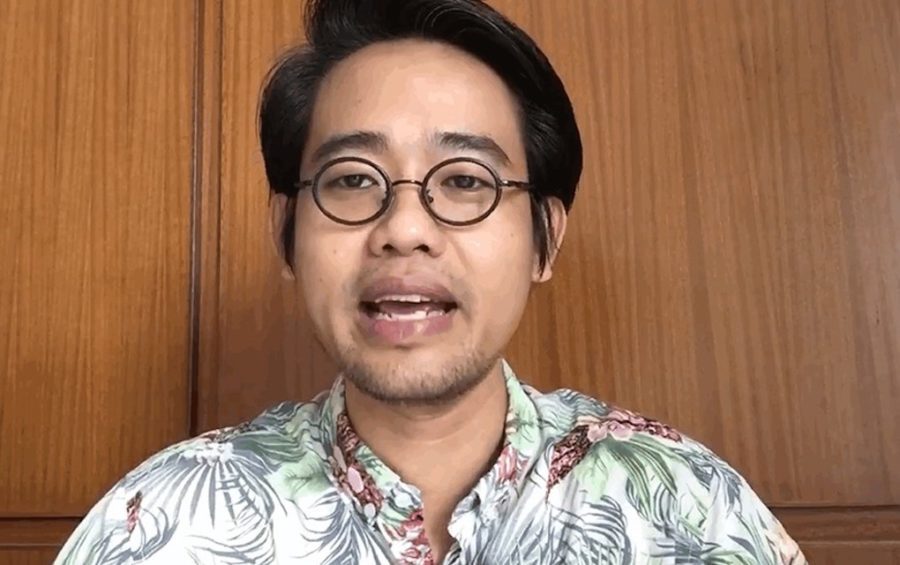The abduction of Thai activist Wanchalearm Satsaksit by “four unidentified armed persons” in Phnom Penh in June, and five other cases of Thai opposition activists disappearing since 2016, “point to a pattern of disappearances,” U.N. experts said in a letter released on Tuesday.
“The pattern of cases appears to point towards countries in the region coordinating, assisting or acquiescing to extraterritorially abduct political activists leading to enforced disappearances,” says the letter dated December 11 and signed by seven U.N. human rights experts.
The letter also raises concerns about the 2019 arrest in Phnom Penh of Mexican-Turkish national Osman Karaca, who was “subjected to enforced disappearance for several days, and then deported to Turkey.”
Wanchalearm, a Thai government critic and activist affiliated with the pro-democracy United Front for Democracy Against Dictatorship, known as the “Red Shirt” movement, was living in exile in Phnom Penh when we was allegedly abducted by a group of armed men outside his apartment building.
His sister, Sitanan Satsaksit, has said she was speaking on the phone with her brother at the time he was grabbed. She heard him yell “I can’t breathe” before the call dropped.
During a visit to Phnom Penh in December, Sitanan raised concerns that authorities from the Cambodian and Thai governments may be trying to obstruct the investigation into Wanchalearm’s disappearance.
Cambodian authorities have repeatedly said they did not have sufficient information to continue the search and requested witnesses to come forward, but rights advocates and lawyers hired by Sitanan have pointed to various possible leads, including CCTV footage of the vehicle allegedly used in the abduction, and witnesses living and working at the building from where Wanchalearm was taken.
The government had not responded to the letter as of Monday, the U.N. said.
In previous exchanges between Cambodia and U.N. experts, the latter raised concerns that Cambodian authorities did not fully investigate available evidence, in spite of the government’s insistence that it had pursued all available leads.
Wanchalearm’s was among “a number of cases of Thai opposition activists disappearing abroad between 2016 and 2020 in neighboring countries,” says the latest letter from the U.N. experts, including outgoing rapporteur on human rights in Cambodia, Rhona Smith.
In a separate letter addressed to the Thai government and also dated December 11, U.N. experts say they have received information concerning “at least six alleged cases of Thai political activists disappearing abroad.” They include Wanchalearm, and five others affiliated with the Red Shirt political movement: Siam Theerawut, who disappeared in 2019; Surachai Danwattananusorn, Chatchan Bubphawan and Kraidej Luelert, in late 2018; and Itthipol Sukpan, in 2016.
The remains of Chatchan and Kraidej were found on the banks of the Mekong River bordering Thailand and Laos in December 2018, while the fate and whereabouts of the others are unknown.
Meanwhile, the U.N. experts also raised an allegation that bribery of Cambodian officials by Turkish authorities contributed to the arbitrary arrest of Karaca, the Mexican-Turkish national, in 2019.
Karaca was the former director of Phnom Penh’s Zaman International School, which was sold and renamed in 2018 following pressure against Zaman from Turkish authorities due to its link to Fethullah Gulen, a preacher living in exile in the U.S. whom the Turkish government accuses of staging a coup attempt in 2016.
After news of Karaca’s detention broke in October 2019, National Police spokesperson Chhay Kim Khoeun told VOD that the man was arrested and sent to Turkey as a result of “cooperation” with Ankara.
Karaca was arrested while at a bank in the capital’s Toul Kork district, according to his wife, Grace Karaca, who released a video saying she feared for her husband’s life.
Karaca had entered Cambodia using his Mexican passport, the U.N. letter says.
“According to the information available, the Turkish diplomatic mission in Phnom Penh reported to the Cambodian police that Osman Karaca was holding a fraudulent Mexican passport, after which the authorities arrested Osman Karaca,” it says.
“The Turkish Embassy then demanded his deportation to Turkey due to ‘the lack of an international travel document.’ It is also alleged that the Turkish authorities bribed local officials to secure their cooperation in illegal actions to arbitrarily arrest him,” the letter adds.
Two and half months before Karaca’s arrest and deportation, Phnom Penh and Ankara signed a security cooperation agreement, which “contains ambiguous phrases that are used by the Turkish government to suppress government opponents outside the country,” the Stockholm-based, Turkey-focused Nordic Monitor reported in October last year.
“The Parties shall organize and take measures according to its legislation in force against the persons and institutions that provide financial support or other assistance including shelter, accommodation, training and treatment and logistic support to the terrorist organizations in their territories,” according to the bilateral agreement published by Nordic Monitor.
In their letter to the Cambodian government, the U.N. experts ask whether any attempts were made to ascertain Karaca’s nationality or his passport’s validity, or to contact Mexican consular officials about his detention.
They also request an update on the investigation into Wanchalearm’s abduction and alleged enforced disappearance, including information on steps taken to locate him and identify his abductors.
“We further underline the importance of a robust and comprehensive strategy of search and investigation, undertaken in good faith and that there is a continuing obligation to search and investigate,” they say.
Spokespeople for Cambodia’s Interior and Foreign Affairs ministries, as well as the Turkish Embassy in Phnom Penh, did not respond to questions from VOD as of Tuesday evening.












